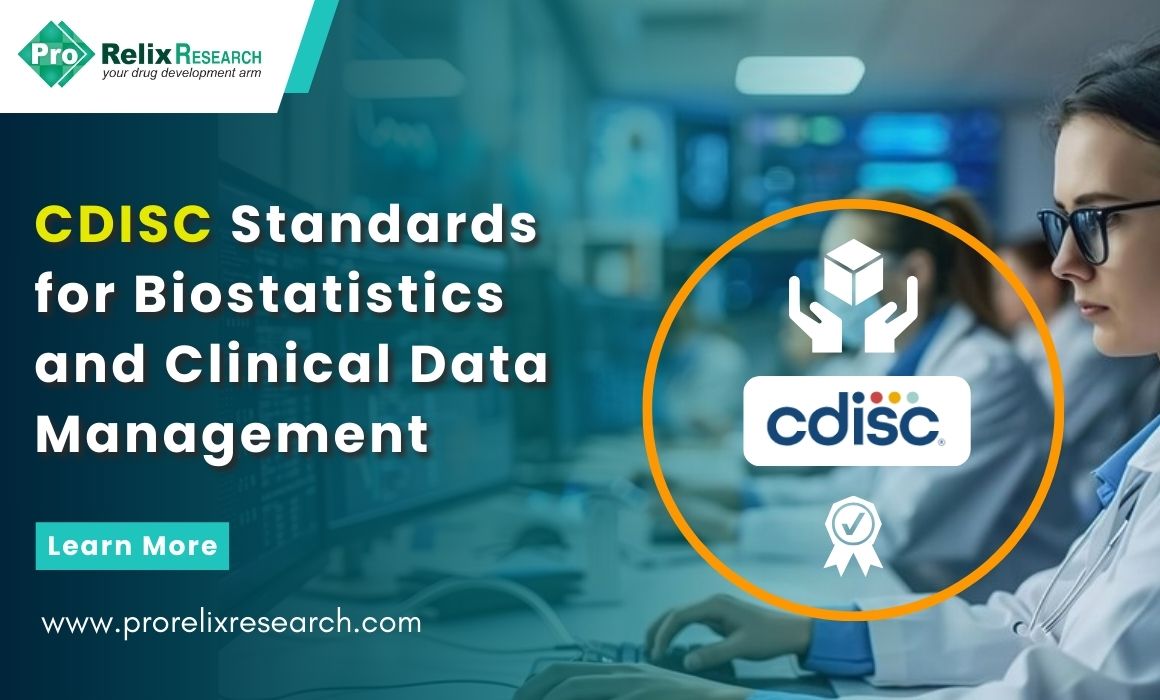Collating and integrating data from a myriad of sources especially in global clinical trials requires that the data be in an accurate, reliable, and consistent format. The application of standards to data ensures data quality, facilitates exchange between different regulatory agencies, reduces errors in data transfer processes, and ensures traceability of the data.
The Clinical Data Interchange Standards Consortium (CDISC) is a standards developing organization dealing with medical research data linked with healthcare with the objective of improving interoperability in healthcare. Several regulatory agencies including the United States Food and Drug Administration (FDA) and the European Medicines Agency (EMA) recommend the that sponsors submit clinical data using CDISC standards to help expedite the regulatory review process and allow help in data exchange. With the increasing use of data from wearable sensors, electronic health records (EHRs), and other sources of real-world data (RWD) to inform clinical decisions, the necessity for a standardized format for data submission is now more important than ever. The FDA strongly supports the use study data standards to exchange clinical and nonclinical research data between computer systems. Organization of study data, dataset templates, naming system for variables, and analysis formats provide a consistent format for study data and CDISC standards are supported by the FDA in two guidances entitled “Providing Regulatory Submissions in Electronic Format—Standardized Study Data” and “Study Data Technical Conformance Guide” for investigational new drug applications (IND), new drug applications (NDA), abbreviated new drug applications (ANDA), and biologics license applications (BLA).
Biostatistics involves the application of statistical methodology to data from biological experiments and clinical data helping in the interpretation of the data to make clinical decisions. Clinical data management (CDM) comprises a suite of steps from data form design, data entry and validation, data cleaning, database management, quality assurance, data reconciliation, database lock and archival and storage. CDISC standards can be used in biostatistics and CDM during various phases such as:
Data collection and organization
CDISC’s Clinical Data Acquisition Standards Harmonization (CDASH) provides a standard format for data collection allowing for consistency and traceability. It helps in the design of case report forms (CRFs) and integrates seamlessly with several electronic data capture (EDC) systems. The Study Data Tabulation Model (SDTM) helps to organize and format raw data into various fields and domains facilitating regulatory review and submission. Both CDASH and STDM help ensure consistency in the data collection process which is used further for statistical analysis and is particularly useful in multicentre trials.
Data analysis
The Analysis Data Model (ADaM) is a set of guidelines created by CDISC that helps in the preparation and organization of data sets for analysis. It involves extraction, transformation, and derivations and works together with SDTM to support data submissions to allow data to be imported from SDTM data sets to an analysis ready ADaM format. It creates statistical summaries and analysis results for statistical data for submission to regulatory authorities.
Controlled terminology
These are a standard set of vocabulary terms used across clinical data to ensure consistency, reproducibility, and interoperability. The controlled terminology is organized into domains which contains items and terms with specific definitions and synonymous terms. Controlled terminology allows the creation of a common language allowing for crosstalk between studies. The Medical Dictionary for Regulatory Activities (MedDRA), WHO Drug Dictionary, and Logical Observation Identifiers Names and Codes (LOINC) are all examples of controlled terminology.
Data exchange
The Operational Data Model (ODM) is an XML-based format for the exchange and archival of clinical data along with associated metadata, administrative data, reference data, and audit information. It allows for interchange and integration between different systems.
Define-XML
It is an XML-based standard to provide metadata describing tabular datasets. It is used by the US FDA and Japanese Pharmaceuticals and Medical Devices Agency (PMDA) for submission to regulatory agencies regarding data sets, variables, and controlled terminology.
submission
The electronic common technical document (eCTD) provides a template and format for submission of clinical, nonclinical, chemistry, manufacturing, and controls (CMC), and administrative data to regulatory agencies and uses SDTM and ADaM formats can be used for submission through the eCTD portal. Furthermore, amendments can be easily traced through this electronic structure and different sub-sections can be easily cross-referenced.
Thus, CDISC standards facilitate automation, standardization, and data sharing while ensuring consistency, reproducibility, and traceability and are useful in case of large observational studies or global clinical trials where data exchange and integrity are of utmost importance.
Read More: Clinical Data Standardization in Clinical Trials: FDA Compliance in Clinical Data Management
References





